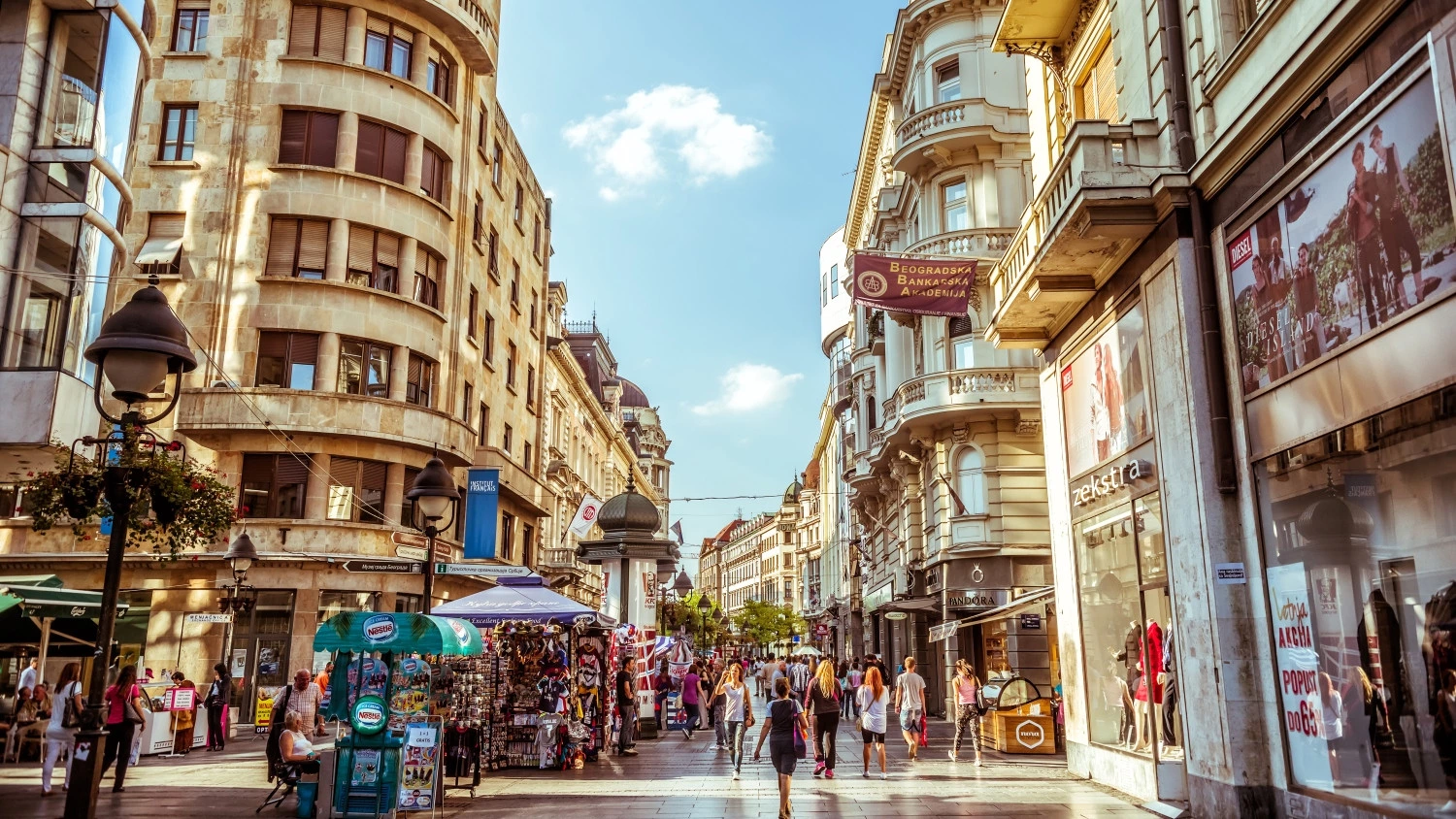
Nearly all market indicators point to positive developments on the Serbian market with further growth expected in all segments. Mia Zečević, the CEO of Serbia’s Novaston Real Estate Platform talked to Property Forum about the company’s development plans and shared her insight on the current trends shaping real estate markets in the Balkans region.
How did the Serbian real estate market perform in 2019?
Nearly all real estate market parameters (investment volumes, number of new investors, vacancy rates, yields, etc.) are indicating positive change and improvements compared with the previous period. Serbia maintains its appeal to foreign investors because — in this aspect — it is still underdeveloped compared to the region’s markets such as the Romania, Bulgaria or Croatia.
All sectors are making fast-paced strides — residential and office as well as retail and logistics. When it comes to the residential sector, housing demand has been on the rise for several years now, even though the price per sqm keeps climbing. When it comes to the distribution of apartments in Belgrade by municipalities, New Belgrade (>90,000 units) takes the definite lead, followed by the mid-ranking municipalities of Voždovac, Zvezdara, Zemun, Palilula, and Čukarica (60,000–70,000 units), which are in turn ahead of those with the lowest density of units, such as Vračar, Rakovica, Stari Grad, Savski Venac, and Surčin (<40,000 units). The average cost of newly built units stood at around €1800 per sqm in 2011 and the next few years saw a decline and stabilization at €1500 per sqm. Since 2016, we have been witnessing a continued increase in the unit price of new buildings and in 2019 the average rate exceeded €1900 per sqm. As for apartment sales, according to the Republic Geodetic Authority, more than 18,500 transactions were reported in the Belgrade area the same year.

Mia Zecevic
CEO
Novaston Real Estate Platform
Mia Zecevic is CEO in Novaston Real Estate Platform. Previously Head of Marketing, Sales and Commercialization at Confluence Property Management prior to joining from ECE Project Management Gmbh, where she was trained for the centre manager position and focused on property management for retail assets. Amongst others, she was responsible for all marketing and sales activities for Usce Shopping Center, the largest shopping mall in the Balkans. Before ECE, she was the project manager for MK Mountain Resort (part of MK Group – a holding company, one of the most successful business systems in Serbia) where she managed and operated 48.000 sqm of 4-star hotel chains in ski resort Kopaonik. Prior to joining MK Group, Ms. Zecevic worked at the biggest Serbian brokerage company at the time, M&V Investments, where she analyzed local and international stock exchange markets. She graduated at Bocconi University in Milan, with a degree in International Economics and Management and holds Masters Degree in Business Management from Cass Business School in London.
More »What are the trends driving the office market in Belgrade?
When it comes to commercial property, the sector’s growth in Serbia is very dynamic, with rents hitting record highs, although asset sales are few and far between. As for Belgrade, the supply of modern Class A office space is around 800,000 sqm. The vacancy rate is below 5%, and we expect that supply growth in the coming period will bump the rate to 6–9% and decrease rents in top-tier developments. Despite these positive developments, the office market is still slightly lagging in comparison with the region, in terms of the stock per 1,000 inhabitants.
How is Serbia keeping up with regional trends on the retail and logistics markets?
When it comes to shopping malls, Serbia is still lagging behind in the region — Slovenia wins the race with 600 sqm per 1,000 inhabitants in Ljubljana, while this figure in Belgrade stands at around 200 sqm per 1,000 inhabitants. The past two years saw the opening of two large shopping malls — Promenade in Novi Sad, spread across an area of 50,000 sqm, and Ada Mall in Belgrade, covering 34,000 sqm. In 2020 we expect the opening of Eagle Hills’s BW Galleria and MPC's Beo Shopping Center. The present power balance of retail investors will shift significantly, which will likely be followed by a quiet period in investments. This makes it necessary to wait for absorption or market reaction. Right now, Serbia brings in the highest rental yield compared to the countries in the region, at 8% for shopping malls and 8.5% for retail parks, while average rents in top-tier shopping malls range from €27 to €29 per sqm (the current rental yield for prime shopping malls in Croatia, Slovenia, and Bulgaria is cca. 7%). Furthermore, the coming years will see great potential for the retail park format, which is expanding, especially in smaller cities, where formats like this are being relocated from main streets and pedestrian zones to the parks.
As for the logistics sector, since 2000, Serbia has seen around 900,000 sqm of industrial and logistics facilities built. Today, CTP is building logistics and manufacturing facilities at several locations, currently developing the biggest industrial park in Serbia, CTPark Belgrade North.

As the market kept developing, Novaston Real Estate Platform has continuously expanded its business. What are your plans for the future?
We started out with Novaston Asset Management and today our portfolio includes Novaston Project Management, Novaston Facility Management, Novaston Marketing Consultancy and Novaston Croatia. From a staff of five when we launched, we grew to more than 60 employees, becoming a notable brand in both Serbia and the region. Our goal is to centre our activities around commercial property and logistics in the coming period. Our team — which is made up of seasoned experts with international experience who have already proven themselves on key projects in Serbia and the region — is ready for this new challenge.
Are you planning to expand beyond Serbia?
In the past year, we have positioned ourselves on the Croatian market as a strategic partner in expanding the portfolio of the Stop Shop retail park, owned by Immofinanz, a major client of ours. We also work with NEPI Rockcastle, investors that bought Arena Centar and Arena Park, and SES Group with their King Cross Jankomir project, as well as other foreign and local partners in Croatia. Our plan is to further grow through the execution of several different projects in Bosnia and Herzegovina, Montenegro, and the territory of Kosovo.



